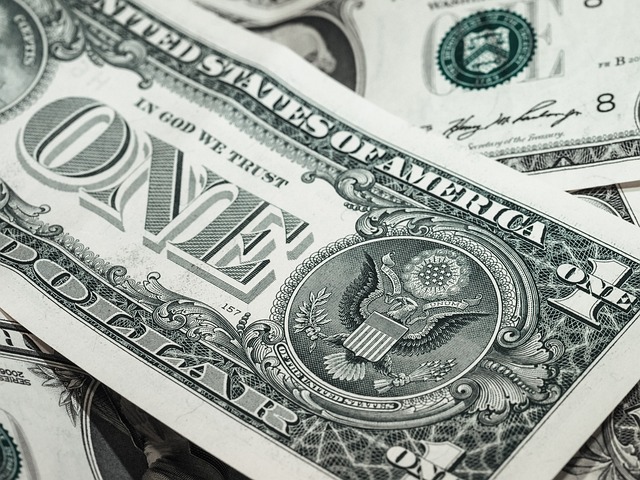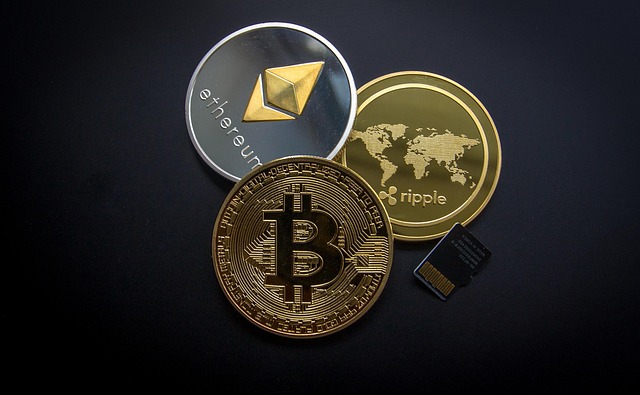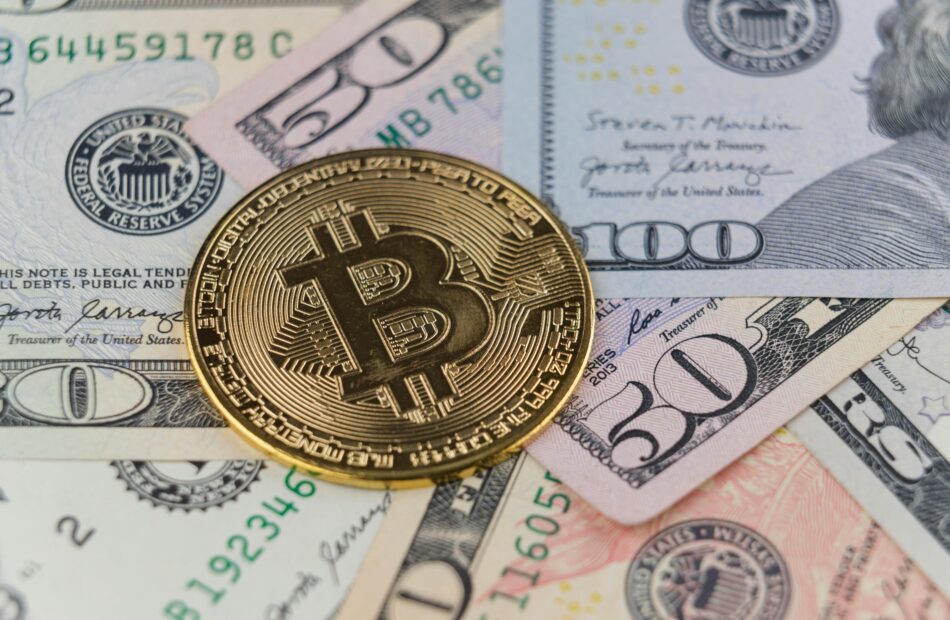Nous Research secures $50M from Paradigm to build decentralized AI on Solana
Decentralized AI startup Nous Research has raised $50 million in a Series A round led by crypto venture giant Paradigm, marking one of the largest investments at the intersection of blockchain and artificial intelligence to date.According to an April 25 report from Fortune, the funding round values Nous at a $1 billion token valuation. Previous investors include Distributed Global, North Island Ventures, and Delphi Digital, who contributed to Nous’s earlier $20 million seed rounds.Operating since 2022, Nous Research is stepping into the spotlight with the latest fundraising to develop open-source AI models powered by decentralized infrastructure.The company leverages the Solana blockchain to coordinate and incentivize global participation in training its AI models, aiming to challenge centralized giants like OpenAI and DeepSeek.Nous Research announcing Nous Psyche on Solana. Source: Nous ResearchRelated: Angels from Citadel, Jane Street, JPMorgan back $20M raise for Theo networkNous harnesses global idle compute power for AI trainingFounded by AI researchers, including collaborators like Diederik Kingma (co-inventor of the Adam optimizer), Nous is taking a different approach from typical crypto-AI projects.Instead of relying on centralized data centers, it enables individuals worldwide to contribute idle computing power for AI training.Blockchain technology underpins this model, ensuring secure, incentivized participation while mitigating risks like data poisoning through features such as Byzantine fault tolerance.“We very much came from a mentality that we want to create and serve the world’s best AI,” co-founder Karan Malhotra told Fortune.Per the report, the 20-person team at Nous Research will allocate much of the new capital toward scaling compute resources and advancing research.In December 2024, Nous told Venture Beat that it is pre-training a 15-billion-parameter LLM in a decentralized manner, livestreaming progress to showcase transparency and performance.Meanwhile, Paradigm’s backing signals a deepening interest in AI within crypto venture circles.“This open, community-oriented approach is a powerful contrast to the closed, centralized efforts from incumbent labs,” Paradigm partner Arjun Balaji reportedly told the outlet.Related: Crypto users cool with AI dabbling with their portfolios: SurveyParadigm becomes top-performing crypto VCParadigm is one of the biggest and most successful crypto venture capital firms.In March, Web3 data platform Kaito AI ranked Paradigm as the top-performing crypto VC over the past year, posting an impressive 11.80% performance metric, outperforming other major players like Alliance (10.64%), Dragonfly (8.32%), a16z (6.94%) and Multicoin Capital (5.86%).Source: RoryFounded by Coinbase’s Fred Ehrsam and ex-Sequoia partner Matt Huang, Paradigm has built a strong reputation for spotting high-potential crypto projects early.Its portfolio includes leading DeFi platforms like Uniswap (UNI) and dYdX, as well as consistent backing for Ethereum scaling solutions such as Optimism.Paradigm also led a $255 million round for StarkNet, a key player in zero-knowledge rollup technology.Magazine: Stablecoin for cyber-scammers launches, Sony L2 drama: Asia Express
Circle executive denies claims of seeking US banking license
An executive at major stablecoin issuer Circle denied reports that the company is looking to obtain a US federal bank charter.In an April 25 X post, Circle’s chief strategy officer and head of global policy, Dante Disparte, denied that the company is interested in obtaining a US federal bank charter or acquiring an insured depository institution.Instead, he said that Circle intends to comply with future US regulatory requirements for payment stablecoins, “which may require registering for a federal or state trust charter or other nonbank license.” He also urged lawmakers to reach regulatory clarity for stablecoins sooner rather than later.Source: Dante DisparteThe statement followed recent reports that major cryptocurrency firms, including stablecoin issuer Circle and crypto custodian BitGo, were considering applying for bank charters or licenses. Other firms cited as seeking such licenses included publicly traded US-based crypto exchange Coinbase and stablecoin issuer Paxos.Related: Circle’s EURC grows as trade war pushes euro higher — AnalystThe report was not entirely baselessCointelegraph reached out to all the companies cited in the report, requesting a confirmation or denial. All companies except one did not comment, with Coinbase confirming that it is considering such a license.Still, it was not the first report that Circle was interested in a US bank charter. In April 2022, Circle CEO Jeremy Allaire said in an interview with Bloomberg that the firm was already in discussions with regulators as part of its efforts to apply for a bank charter “hopefully in the near future.”Circle did not respond to Cointelegraph’s request for further comment as of publication time. Another previous report indicated that the US Office of the Comptroller of the Currency had granted a preliminary, conditional approval for a US bank charter to Paxos in 2021.Related: Circle considers IPO delay amid economic uncertainty — ReportUS stablecoin regulation is evolvingThe news came as US regulators were working to change how stablecoins are regulated. The US House Financial Services Committee passed a Republican-backed stablecoin framework bill earlier this month.The bill in question is the Stablecoin Transparency and Accountability for a Better Ledger Economy (STABLE) Act. Another bill currently moving through the US legislative process is the Guiding and Establishing National Innovation for US Stablecoins (GENIUS) Act.The STABLE and GENIUS bills differ in how they would regulate the stablecoin industry, with the former emphasizing strict federal oversight and the latter being more flexible, allowing for both federal and state rules. The GENIUS Act bill was introduced first and passed the US Senate Banking Committee in mid-March.Magazine: Stablecoin for cyber-scammers launches, Sony L2 drama: Asia Express
Trump memecoin team denies $300K dinner requirement rumors
US President Donald Trump’s memecoin team denied social media rumors that holders of the Official Trump (TRUMP) token need at least $300,000 to participate in an upcoming dinner with the president. On April 25, the official X account of the Trump memecoin clarified that there is no $300,000 requirement to join the memecoin project’s dinner event featuring the US president. The rumor stemmed from community members citing the Solana blockchain explorer showing holders on the token’s contract address. At the time of writing, the explorer shows that the 220th-largest holder has 33,114 TRUMP, worth more than $400,000. However, the memecoin team said the explorer doesn’t reflect their criteria. “People have been incorrectly quoting #220 on the block explorer as the cutoff. That’s wrong because it includes things like locked tokens, exchanges, market makers, and those who are not participating. Instead, you should only be going off the leaderboard,” they wrote. Leaderboard for Trump Coin holders. Source: Trump CoinRelated: SEC task force met with Trump-supporting firms to discuss crypto regulationTrump to hold dinner for top 220 memecoin holdersOn April 23, the Trump Coin team revealed the leaderboard, showing the wallet addresses of those who are in the lead to qualify for the dinner event. The final guest list is still not finalized, but the memecoin team said any tokenholder who wants to be eligible must go through a background check. In addition, their wallet will also go through Know Your Customer and compliance measures. According to the memecoin’s official site, the team will pick the winners based on time-weighted holdings. This calculates the amount held and the time the tokens were held. “The longer you hold, the higher your weighted score becomes,” the team wrote. At the time of writing, the top holder in the leaderboard holds over 1.1 million tokens, worth $14.6 million, but only has a time-weighted score of over 686,000. The 220th wallet holder has 1,125 TRUMP, valued at almost $15,000, and a score of 136. The leaderboard also shows that some addresses with zero current TRUMP holdings remain eligible for the dinner. This is likely due to how long they previously held their tokens. Magazine: Pokémon on Sui rumors, Polymarket bets on Filipino Pope: Asia Express
US banks are ‘free to begin supporting Bitcoin’ — Michael Saylor
Bitcoin adoption among United States financial institutions could see a major boost after the US Federal Reserve withdrew its guidance discouraging banks from engaging with cryptocurrency.On April 24, the Fed withdrew its 2022 supervisory letter that served as guidance to deter banks from engaging in crypto and stablecoin activities. The withdrawal spurred a notable uplift in Bitcoin (BTC) investor sentiment.The Federal Reserve Board’s withdrawal giving banks guidance on crypto activities. Source: Federal ReserveThe 2022 guidance initially warned that crypto may pose risks to investors and the stability of the US financial system.The Fed’s move means that “banks are now free to begin supporting Bitcoin,” said Michael Saylor, co-founder of the world’s largest corporate Bitcoin holding firm, Strategy, in an April 25 X post.Source: Michael SaylorThe Fed’s decision “is a significant development, as it will simplify the path to institutional adoption,” according to Anastasija Plotnikova, co-founder and CEO of blockchain regulatory firm Fideum.“The withdrawal of this particular guidance ensures that crypto assets will be overseen through standard supervisory processes,” she told Cointelegraph, adding:“We still need to have GENIUS and STABLE bills to be passed to further harmonize the crypto activities amongst Fed-supervised firms and other market participants. The combination of legislative effort will be the main driver behind the institutional adoption.”The Stablecoin Transparency and Accountability for a Better Ledger Economy, or STABLE Act, passed the US House Financial Services Committee with a 32–17 vote on April 2. The bill aims to create clear regulatory guidelines for dollar-denominated stablecoins.Source: Financial Services GOPThe GENIUS Act, short for Guiding and Establishing National Innovation for US Stablecoins, passed the Senate Banking Committee by a vote of 18–6 on March 13.Related: Trump fought the bond market, the bond market won: Saifedean AmmousFed’s shift marks end of us regulatory hostilityThe Federal Reserve’s decision may be a “meaningful turning point” for Bitcoin’s institutional adoption in the US, according to Eneko Knörr, co-founder and CEO of Stabolut, a yield-bearing stablecoin project.“Up until now, US regulatory hostility made it virtually impossible for traditional financial institutions to participate in this space,” Knörr told Cointelegraph.“With the recent shift in the Fed’s guidance, the door is finally open. This unlocks an enormous opportunity for banks — one that until now has been dominated by players like Coinbase and other crypto-native firms,” Knörr added. Knörr added that banks are now likely to move quickly to meet client demand and retain market share previously captured by crypto-native firms like Coinbase. Related: Serbia’s Prince Filip says Bitcoin is being stifled, expects huge rallyBitcoin adoption among financial institutions is also lagging in Europe, with less than 20% of European banks offering crypto services, despite the rising investor demand and regulatory clarity in the region.Magazine: Bitcoin’s odds of June highs, SOL’s $485M outflows, and more: Hodler’s Digest, March 2 – 8
Russian crypto exchanger Mosca raided amid cash-to-crypto ban talks
As the Russian government is considering a ban on cash-to-cryptocurrency transactions, some major local crypto exchange platforms have encountered police raids.Mosca, a crypto-to-cash exchange located in the Moscow International Business Center, was raided on April 23 in connection with fraud by one of its customers, Dmitry Titarenko, Mosca’s development head, confirmed to Cointelegraph.“Law enforcement agencies have carried out a standard procedure of checking our customer data,” Titarenko told Cointelegraph at the local crypto event Blockchain Forum 2025.Mosca’s office raid followed online reports linking several arrests of some Mosca customers with an alleged crypto robbery involving a victim reportedly giving fraudsters a massive cash deposit worth millions of dollars.Cash-to-crypto ban to protect investors?Mosca’s confirmed police raid came the next day after Evgeny Masharov, a member of the Russian Civic Chamber, proposed banning crypto exchangers from accepting cash from their customers to buy cryptocurrencies like Tether USDt (USDT).A potential ban on cash-to-crypto transactions would be a “massive blow to fraudsters,” Masharov urged, adding that phone scammers are “often using crypto exchangers for withdrawing cash funds.”Olga Serova, a former adviser to the head of the government of Samara region, claims to have lost up to $5 million to crypto fraudsters. Source: BazaSubsequently, local news channel Baza reported on the Mosca’s raid, linking the event with a “record-breaking fraud” against Olga Serova, a former government adviser in Russia’s Samara region.Serova, 71, reportedly fell victim to scammers in late 2024, cashing out her bank accounts to pass the fraudsters an estimated total of 421 million Russian rubles ($5.1 million). According to Baza, at least seven people were arrested, allegedly in connection with the case.Mosca clients can buy up to 100,000 USDT with cash dailyMosca, which allows investors to deposit up to 100,000 USDT ($100,000) daily, is not aware whether Serova’s incident was connected to its office raid on Wednesday, Titarenko said.“Maybe it was another client,” he noted, adding that the raid was the first criminal case-related office raid at Mosca in the past three months.Titarenko also mentioned that Mosca has been actively beefing up its Anti-Money Laundering and Know Your Customer checks, including maintaining a blacklist of suspicious users.Related: Russia’s central bank, finance ministry to launch crypto exchangeThe raid caught Mosca during a major local event, Blockchain Life, returning to Moscow for the first time since October 2021. The company was one of the main guests at the conference, taking two center stands and winning a title of the “best crypto exchange service.”One of Mosca’s stands at the Blockchain Forum 2025. Source: CointelegraphAccording to Sergey Mendeleev, a prominent figure in the Russian crypto community, the proposal to ban cash-to-crypto transactions is an alarming development for the community.Speaking at the event, Mendeleev suggested that the Russian government might be turning away from crypto adoption if it opts to approve such a ban.He also mentioned that raids are a common situation for crypto exchange services located at the Moscow International Business Center, also known as Moscow City.Garantex, a crypto exchange that halted trading after Tether froze $27 million in USDT due to sanctions, was also among the exchangers located in Moscow City.Magazine: Pokémon on Sui rumors, Polymarket bets on Filipino Pope: Asia Express
Blockchain needs regulation, scalability to close AI hiring gap
The emerging blockchain industry lags behind the artificial intelligence sector in terms of job creation, but this hiring gap may narrow by 2030.Blockchain remains one of the smallest sectors in the tech industry, with about 300,000 global jobs, compared to 1.5 million in AI and machine learning and 25 million in software development, according to a new Bitget Research report shared with Cointelegraph.The blockchain sector added around 20,000 new jobs in 2024, according to job listings aggregated from platforms like LinkedIn, Web3 Jobs and Crypto Job List.Total workforce in tech industry. Source: Bitget ResearchWhile blockchain-based jobs had an average compound annual growth rate (CAGR) of 45%, outpacing most traditional tech sectors, it trails the AI industry’s 57% CAGR, according to the report.The AI industry’s maturity and larger share of venture capital investment are the main reasons behind the hiring discrepancy, Vugar Usi Zade, chief operating officer of Bitget exchange, told Cointelegraph:“Venture investors put more than $100 billion into AI startups in 2024, with AI-centric titles topping a million vacancies worldwide,” Usi Zade said. “Blockchain companies, meanwhile, advertise barely 20,000 openings and drew only about $5.4 billion in new funding during the same period.”Regional blockchain market distribution. Source: Bitget ResearchRelated: Crypto firms moving into Wall Street territory amid ‘growing synergy’Blockchain may generate over 1 million jobs by 2030AI-related job listings have risen between 75% and 100% year-over-year, while blockchain job growth remains around the 45% to 60% growth range.Blockchain vs AI job listings growth. Source: Bitget ResearchBlockchain could exceed 1 million jobs by 2030 if it manages to scale at the same rate as AI-based roles, the report said.More regulatory clarity from laws such as Europe’s Markets in Crypto-Assets Regulation (MiCA) may encourage blockchain firms to increase their hiring efforts, Zade said:“Europe’s MiCA rule-book, live since December 2024, is already thawing hiring freezes; similar clarity in the United States and Asia would unlock global head-count plans.”“Second comes enterprise-grade performance: Ethereum’s Dencun upgrade cut typical layer-2 fees by more than 95%, signaling that blockchains can now handle corporate traffic at an acceptable cost,” he added.Related: Trump fought the bond market, the bond market won: Saifedean AmmousWhile blockchain-based jobs are poised for growth, “AI will naturally garner more talent in the next decade,” Jawad Ashraf, CEO of Vanar Chain, told Cointelegraph.“This is because AI’s market integration has been faster than any other modern technology we can remember,” he said. “If you look at blockchain, we’re still very much focused on integrating with TradFi and broader Web3 markets like gaming, real-world tokenization, etc.”He added: “Blockchain still hasn’t penetrated the more conventional consumer-oriented markets. It will, in the near future, but we are not there yet.”Blockchain and AI are not competing for talent“AI and blockchain aren’t competing for talent; they’re working together to create new opportunities,” Yakov Lebedev, chief business development officer at 3Commas, a trading automation solution, told Cointelegraph.Combining the two technologies enables “sophisticated financial tools accessible for everyone, not just big institutions, he said, adding:“Companies are paying top dollar for professionals who understand both AI and blockchain, recognizing the value of this cross-domain expertise.” Lebedev added that the integration of blockchain with AI is driving steady job growth in both fields, as financial and tech firms move integrated solutions from pilot programs into core operations.Thanks to the synergistic benefits of the two technologies, blockchain job growth may start mirroring the AI industry, according to Adi Ben-Ari, founder and CEO at Applied Blockchain, an AI-powered blockchain development firm.AI technology is “probabilistic and introduces uncertainty,” which creates more demand for blockchain and cryptographic technologies, he told Cointelegraph.“AI produces outcomes that are not always accurate, can be fake, and can sometimes be incorrect,” he said. “This new uncertainty needs to be countered by a technology that brings absolute certainty, and this is where blockchain and cryptography come in.”Ben-Ari added that blockchain’s ability to secure sensitive information through cryptography would become increasingly important as AI consumes larger amounts of personal data. LUNA payments to STIX protocol. Source: BasescanAI agents are already using cryptocurrency for autonomous transactions. On Dec. 16, 2024, Luna, an AI agent on Virtuals Protocol, paid another AI agent from STIX Protocol, in exchange for its image generation services — sending $1.77 worth of Virtual (VIRTUAL) tokens, onchain data shows.Magazine: Altcoin season to hit in Q2? Mantra’s plan to win trust: Hodler’s Digest, April 13 – 19
SUI's 73% weekly price gains top crypto market — New price record in reach?
Key takeaways: SUI is up 23% in the past 24 hours and 73% weekly, outperforming top-cap cryptocurrencies.The launch of the Grayscale SUI Trust and the xPortal/xMoney Mastercard partnership boosted investor confidence.SUI’s TVL is up 40%, and daily DEX volumes surge by 177%, signaling strong ecosystem trust and utility.Sui (SUI) price was up 23% in one day, to trade at $3.67 on April 25. This is part of a prevailing rebound that began on April 21 and has seen Sui rise more than 73% over the last seven days.Data from Cointelegraph Markets Pro and TradingView shows SUI rose from a low of $2.11 on April 21, climbing as much as 77% to an intraday high of $3.71 on April 25.SUI/USD daily chart. Source: Cointelegraph/TradingViewSUI’s performance over the last seven days made it the biggest gainer among the top 100 cryptocurrencies by market cap.Top gainers April 25. Source: CoinMarketCapSUI price buoyed by positive fundamentalsSUI’s gains are primarily fueled by increasing investor confidence following the Grayscale SUI Trust launch and SUI’s strategic partnership with xPortal and xMoney to issue a virtual Mastercard across Europe.“SUI’s officially out of stealth mode,” said pseudonymous analyst Kyledoops in an April 24 post on X.“Grayscale just launched a trust, social chatter is exploding, and it’s [SUI] now sitting above AVAX and LINK in market cap,” Kyledoops expressed, adding:“This isn’t just retail hype—Wall Street is stepping into the SUI zone. Momentum feels different this time. It’s real. And it’s accelerating.”On April 23, Grayscale launched the Grayscale SUI Trust, which enables investors to gain exposure to SUI. The trust is now open to all eligible accredited investors.Source: GrayscaleAdding to the tailwinds is SUI’s latest partnership with xPortal and xMone, which introduced a virtual Mastercard, enabling 2.5 million European users to spend the token at over 20,000 merchants via Apple Pay and Google Pay.Source: Sui NetworkSui’s growing DeFi ecosystemSui remains among the top 10 layer-1 blockchains, with over $1.65 billion in total value locked (TVL) on the network. The chart below shows that the SUI’s TVL has increased about 40% over the last seven days.Sui network: TVL and daily DEX volumes. Source: DefiLlamaCompared to other top-layer networks, SUI is well ahead of its rivals in terms of TVL gains on the daily, weekly and monthly time frames, as shown in the chart below.Comparison of TVL performance on top layer-1 blockchains. Source: DefiLlamaSUI’s daily DEX volumes have risen by more than 177% over the last week, to $599 million. This is significantly higher than the 68% and 67% increases on BNB Chain and Solana, respectively. Related: Price predictions 4/23: BTC, ETH, XRP, BNB, SOL, DOGE, ADA, LINK, AVAX, SUIAlthough Ethereum remains the undisputed leader at $10.6 billion, this has declined by more than 14% over the last seven days.Are new all-time highs coming for SUI?From a technical perspective, SUI price gained momentum after breaking out of a falling wedge pattern, as shown on the daily chart below.After breaching a multimonth resistance trendline near $2.20, SUI reached the wedge’s technical target at $3.30. Bulls are now focused on all-time highs of $5.35, reached on Jan. 6.SUI/USD daily chart. Source: Cointelegraph/TradingViewThe relative strength index (RSI) has increased from 45 to 78 since April 20, reinforcing the strength of the bullish momentum.However, to sustain the ongoing recovery, SUI price has to first overcome the resistance between $4.50 and $5.10, before going into price discovery.Based on Elliott Wave analysis of the weekly chart, pseudonymous analyst Bitcoinsensus set a “massive” price target of $11.50 for SUI.Source: BitcoinsensusThis article does not contain investment advice or recommendations. Every investment and trading move involves risk, and readers should conduct their own research when making a decision.
China may shift from US Treasurys toward gold, crypto — BlackRock exec
Central banks, particularly China, may start to shift away from US Treasurys, exploring alternatives such as gold and Bitcoin, according to Jay Jacobs, BlackRock’s head of thematics and active ETFs.In a recent interview with CNBC, Jacobs said that geopolitical tensions and rising global uncertainty are accelerating diversification strategies among central banks.He pointed to a long-term trend where countries have been reducing their reliance on dollar-based reserves in favor of assets like gold and, increasingly, Bitcoin (BTC).“This whole diversification away from traditional assets and into things like gold and also crypto […] probably began three, four years ago,” Jacobs explained.He said that recent geopolitical fragmentation has intensified the push toward alternative stores of value.Jacobs referenced growing concerns about the freezing of $300 billion in Russian central bank assets following its invasion of Ukraine, suggesting that such events have prompted countries like China to rethink their reserve strategies.BlackRock executive Jay Jacobs on CNBC. Source: YouTubeRelated: Crypto, stocks enter ‘new phase of trade war’ as US-China tensions riseGeopolitical fragmentation to shape global marketsDuring the interview, Jacobs said BlackRock, the world’s largest asset manager, has identified geopolitical fragmentation as a defining force for global markets over the coming decades:“We really identified geopolitical fragmentation as a mega force that is driving the world forward over the next several decades.”He noted that this environment is fueling demand for uncorrelated assets, with Bitcoin increasingly viewed alongside gold as a safe-haven asset.“We’ve seen significant inflows into gold ETFs. We’ve seen significant inflows into Bitcoin. And this is all because people are looking for those assets that will behave differently,” Jacobs said.Related: Bitcoin ‘decouples,’ stocks lose $3.5T amid Trump tariff war and Fed warning of ‘higher inflation’Investors highlight Bitcoin decouplingNotably, Jacobs is not alone in stressing Bitcoin’s declining correlation with US equities. Several analysts have also observed that Bitcoin is beginning to decouple from the US stock market.On April 22, Alex Svanevik, co-founder and CEO of the Nansen crypto intelligence platform, said Bitcoin’s price is showcasing its growing maturity as a global asset, becoming “less Nasdaq — more gold.”He added that Bitcoin was “surprisingly resilient” amid the trade war compared to altcoins and indexes like the S&P 500, but remains vulnerable to economic recession concerns.Source: Alex SvanevikEchoing this sentiment, QCP Capital said in an April 21 Telegram note that Bitcoin seemed to be sharing some of gold’s limelight as a hedge against macroeconomic uncertainty.“With equities finishing last week in the red and extending an April drawdown, the narrative of BTC as a safe haven or inflation hedge is once again gaining traction. Should this dynamic hold, it could provide a fresh tailwind for institutional BTC allocation,” it wrote.Magazine: Ethereum is destroying the competition in the $16.1T TradFi tokenization race








